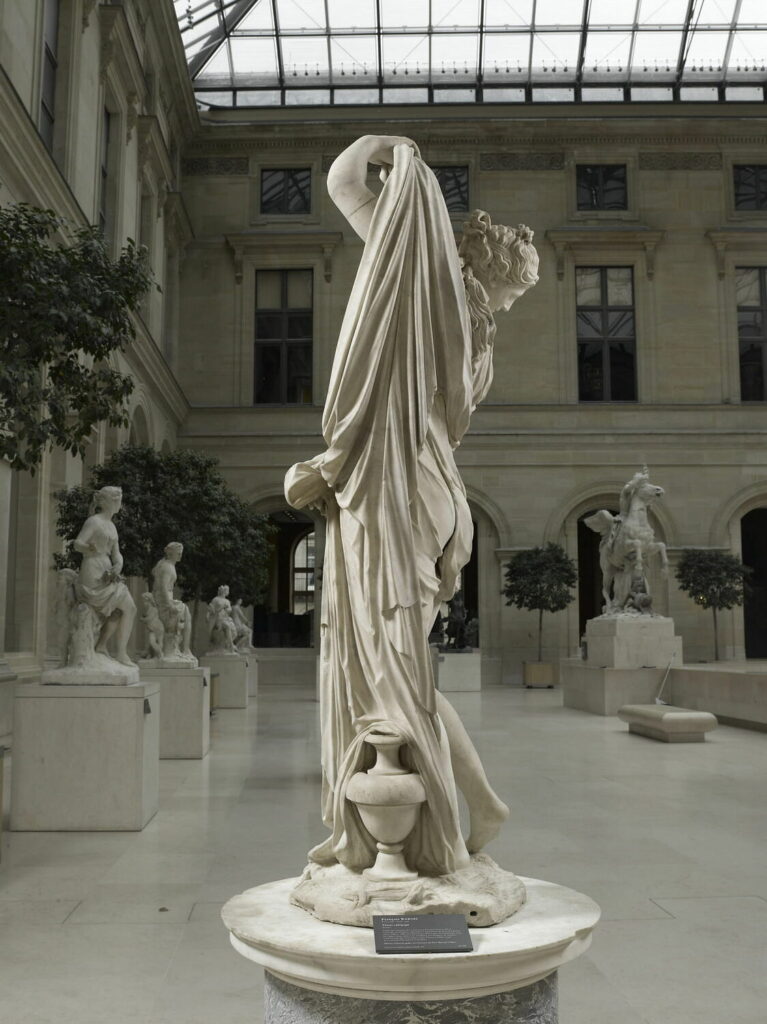What if I told you there’s a word that perfectly describes a beautifully sculpted backside?
Meet Callipygian—a word that sounds fancy but is really just the classiest way to compliment someone’s rear end.
The Ancient Greek Obsession with Butts
The word Callipygian (pronounced kal-uh-PIJ-ee-uhn) comes from the Greek καλλίπυγος (kallipygos), a combination of:
- Kallos (καλλος) → Meaning “beautiful”
- Pyge (πυγή) → Meaning “buttocks”
Legend has it that Ancient Greeks were BIG fans of well-formed behinds—so much so that they built a statue dedicated to them:
🗿 Venus Callipyge – a sculpture of Aphrodite lifting her robe to admire her own rear.
Even Greek beauty contests (yes, those existed) supposedly had a category for the best derrière.
An electron-induced, vocabulary, edutainment podcast for building your speech, confidence and brain-ceps. Support this podcast: https://podcasters.spotify.com/pod/show/nerdwordpodcast/support
What does 'recalcitrant' mean?
Recalcitrant (adjective): Having an obstinately uncooperative attitude toward authority or discipline. The word comes from the Latin recalcitrare, meaning ”to kick back,” originally used to describe stubborn mules.
In this quick-paced, laugh-filled episode, we tackle ”recalcitrant,” a word you’ll want to master for the SAT, GRE, or simply impressing your friends. Whether it’s rebellious teenagers, stubborn chapters of a book, or even bad hair days, this word has plenty of quirky uses. Don’t miss the hilarious skit featuring Elle and Jay at the bowling alley, where pins and egos collide in a battle of vocabulary wit!
What You’ll Learn in This Episode
• The definition and Latin roots of ”recalcitrant.”
• Why it’s a common word on SATs and GREs (hint: it’s tricky but fun!).
• How the word evolved from describing stubborn mules to humans in the 18th century.
• Creative ways to use ”recalcitrant” in everyday life (and the kitchen!).
• Common synonyms like ”unruly,” ”defiant,” and ”contumacious.”
• Antonyms like ”amenable,” ”compliant,” and ”obedient.”
Skit Highlights
• Elle channels her inner bowling coach to motivate her ”recalcitrant” pins.
• Jay embraces his moniker, ”The Iceman,” and serves up some sarcastic wordplay.
Listener Challenge
What’s the most recalcitrant thing in your life? A rebellious teenager? A stubborn chapter of a book? Share your story in a review or on social media using #NerdWordThePodcast!
Links and Resources
• Visit NerdWordThePodcast.com to explore more fun vocabulary episodes and exclusive content!
• Support the show on Patreon to access bonus content and behind-the-scenes insights.
Tags
• Word of the Day Podcast
• Vocabulary Podcast
• What Does Recalcitrant Mean?
• Recalcitrant Etymology
• SAT/GRE Vocabulary Podcast
• Fun Word Facts
• Educational Podcast
• Edutainment
• Synonyms for Recalcitrant
• Examples of Recalcitrant in Literature
• Quirky Vocabulary Podcast
From Ancient Greece to 21st Century Compliments
The word Callipygian first appeared in English in 1640, describing statues before it was ever used to describe people. Fast forward to today, and it’s a hilariously underused compliment waiting for a comeback.

Callipygian in Pop Culture
🔥 If Shakespeare were alive today, he’d probably call Beyoncé Callipygian.
🔥 Fitness influencers? The modern-day Callipygian idols.
🔥 That person at the gym doing endless squats? Callipygian goals.

How to Use Callipygian in a Sentence
1️⃣ “The Venus Callipyge is the most Callipygian statue in history.”
2️⃣ “After months of hiking, Jamie finally achieved a Callipygian physique.”
3️⃣ “Forget ‘thicc’—Callipygian is the classiest way to give a compliment.”
(Just make sure your delivery doesn’t come off creepy. 👀)
Why You Should Start Using Callipygian Today
Words like Callipygian make everyday conversation more fun, unexpected, and memorable.
Instead of calling someone “fit” or “toned,” why not drop a word that sounds straight out of Shakespeare?
So next time you see a well-sculpted backside, channel your inner linguist and say:
🗣️ “That’s quite Callipygian.”

💡 Bonus: Listen to the Nerd Word Podcast Episode on Callipygian!
Want to hear even more hilarious history and weird word facts? Check out our full episode on Callipygian right here:
👉 What’s the weirdest word you’ve ever heard? Drop it in the show comments below!




